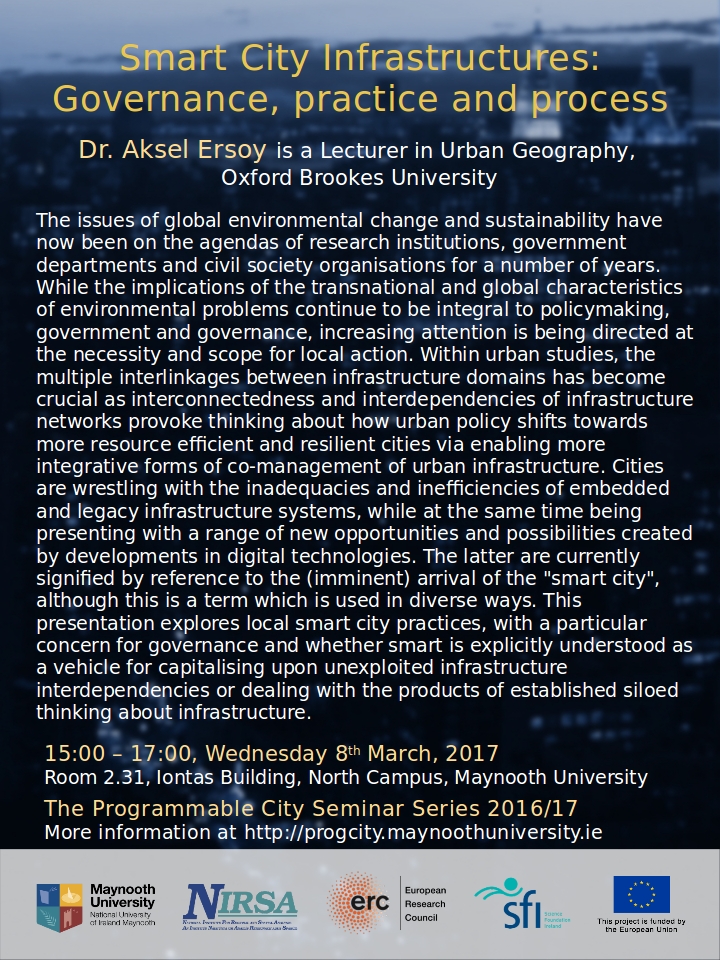Sung-Yueh Perng has published a new working paper entitled Practices and politics of collaborative urban infrastructuring: Traffic Light Box Artworks in Dublin Streets, as part of the Programmable City Working Paper series.
Paper Abstract
Cities are transformed into sites of experimentation through large-scale smart city initiatives, but the visions and practices of establishing public, private and civic partnerships are often overshadowed by corporate interests, governance convenience and efficiency, with an overemphasis on technological innovations. Instead of relying on these partnerships, civic hacking initiatives seek to develop collaboration between programmers and community members, on the one hand, and government officials and organisations, on the other, for experimenting prototyping processes that foreground community needs. These initiatives are considered as pursuing open, inclusive and collaborative governance and is analysed through the lens of collaborative urban infrastructuring to attend to the dynamics, consequences and implications emerging from the prototyping processes. The analysis of the collaboration between Code for Ireland and Dublin City Council Beta suggests that the spatio-temporal scaling of prototypes lead to the continual and contested scaling of skills, knowledges, capabilities, organisational procedures and socio-technical arrangements. These heterogeneous scaling engenders desirable futures and future problems. The articulation and enactment of the values that attract diverse visions, viewpoints and practices into collaborative experimentation can be challenged by agonistic relationships arising from exploring practical arrangements for the mutual shaping of desirable governance procedures and the organisational expectations, obligations and constraints that are already in place. Furthermore, in the processes of scaling, there are constant dangers of enacting patriarchal stewardships and taking an all-knowing position for caring and evaluating impacts, which makes it critical to also experiment with ways of disclosing urban techno-politics that emerges continuously and in unanticipated ways.
If you are interested, full working paper can be found here: https://osf.io/2xpq7

